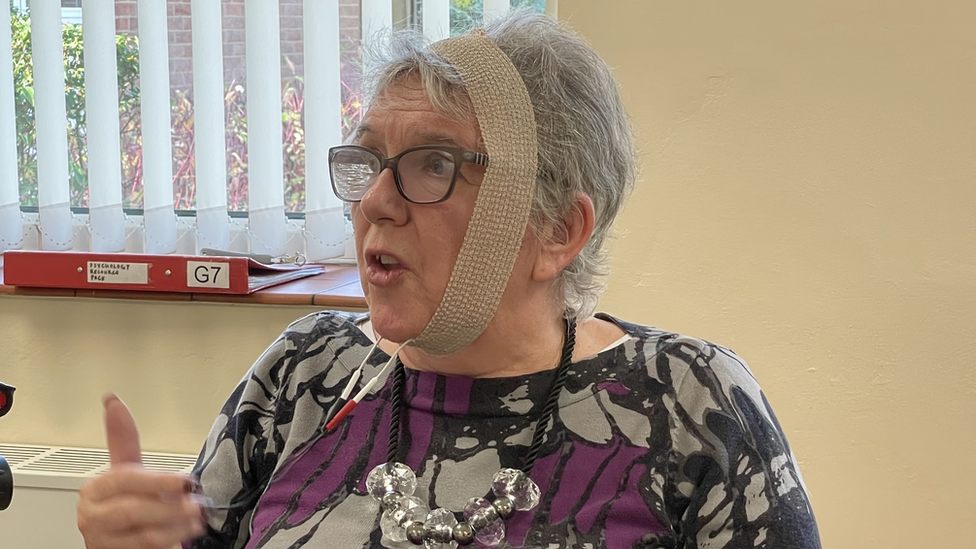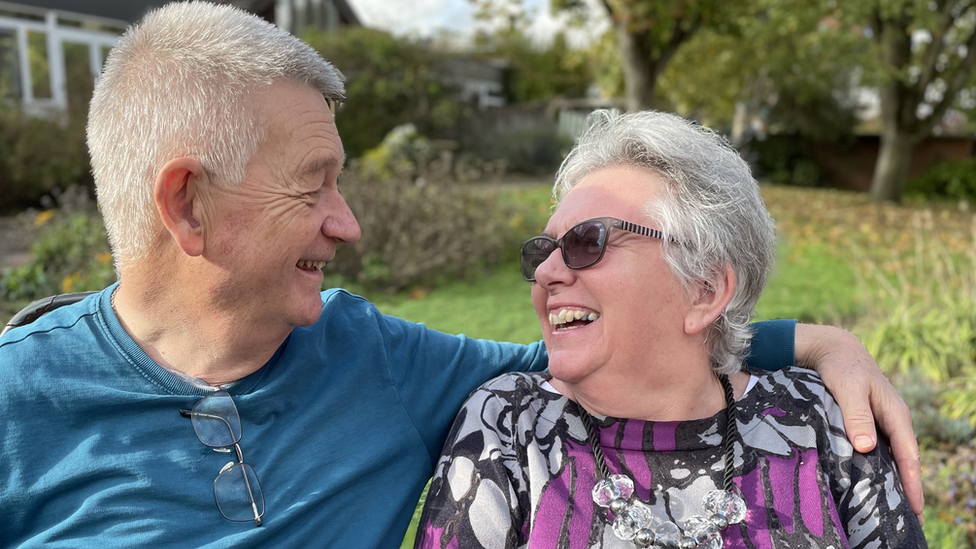Norwich speech therapist hails new technique for stroke patients
- Published

Jane Davenport, who suffered a number of strokes in December, has had 14 sessions of neuro-muscular stimulation
The only specialist speech and language clinic in the East of England said a new rehabilitation technique for stroke patients had been "massive".
The Colman Centre in Norwich has been trialling neuro-muscular stimulation to strengthen the muscles involved in swallowing, when impaired by stroke.
Therapist Judith Dixon said it had seen good results, with some patients being able to eat more textured foods.
"It feels an exciting and innovative way to be working," she said.
Ms Dixon, a highly specialist speech and language therapist, said the technique had helped patients like Jane Davenport, who suffered a number of strokes in December.
The retired teacher was driven to hospital by her husband, Richard, due to a shortage of ambulances and was in intensive care for two weeks. Her family was warned she may not survive.
She was eventually transferred to a unit at Colman Hospital, where she stayed for four months, and she now receives outpatient care at the centre.
'Impact on wellbeing'
The technique requires Mrs Davenport to try to swallow while electrodes stimulate the relevant muscles.
"When Jane was an inpatient she was not able to safely eat or drink anything," said Ms Dixon.
"She is now on her 14th session and she is eating much faster and eating more texture.
"At the weekend she had a plum and apple crumble and an omelette, both of which she had to chew, and had no issues."
She added that the social side of eating and drinking was a huge loss for patients.

Richard Davenport said wife Jane, who has started getting around with the use of a walker, had been extremely fit
"No-one ever talks about swallowing until it goes wrong, and when it goes wrong it's massive," she said.
"We spend so much of our lives around the dinner table, talking about our day. You take that away from someone, it has a massive impact on their identity, their wellbeing."
Mrs Davenport, of Martham, near Great Yarmouth, has also been able to speak so that her husband understands her.
"Imagine losing your ability to express your ideas, your needs, your emotions - when that comes back, that's amazing," said Ms Dixon.
The outpatient service sees people with highly complex rehabilitation needs following a brain injury caused by stroke, trauma, tumour or infection.
It stopped most services during the coronavirus outbreak, with therapists seconded to wards to assist care staff.
Ms Dixon said they worked through their outpatient backlog within a few months and had been back to normal for some time.

Find BBC News: East of England on Facebook, external, Instagram, external and Twitter, external. If you have a story suggestion email eastofenglandnews@bbc.co.uk, external